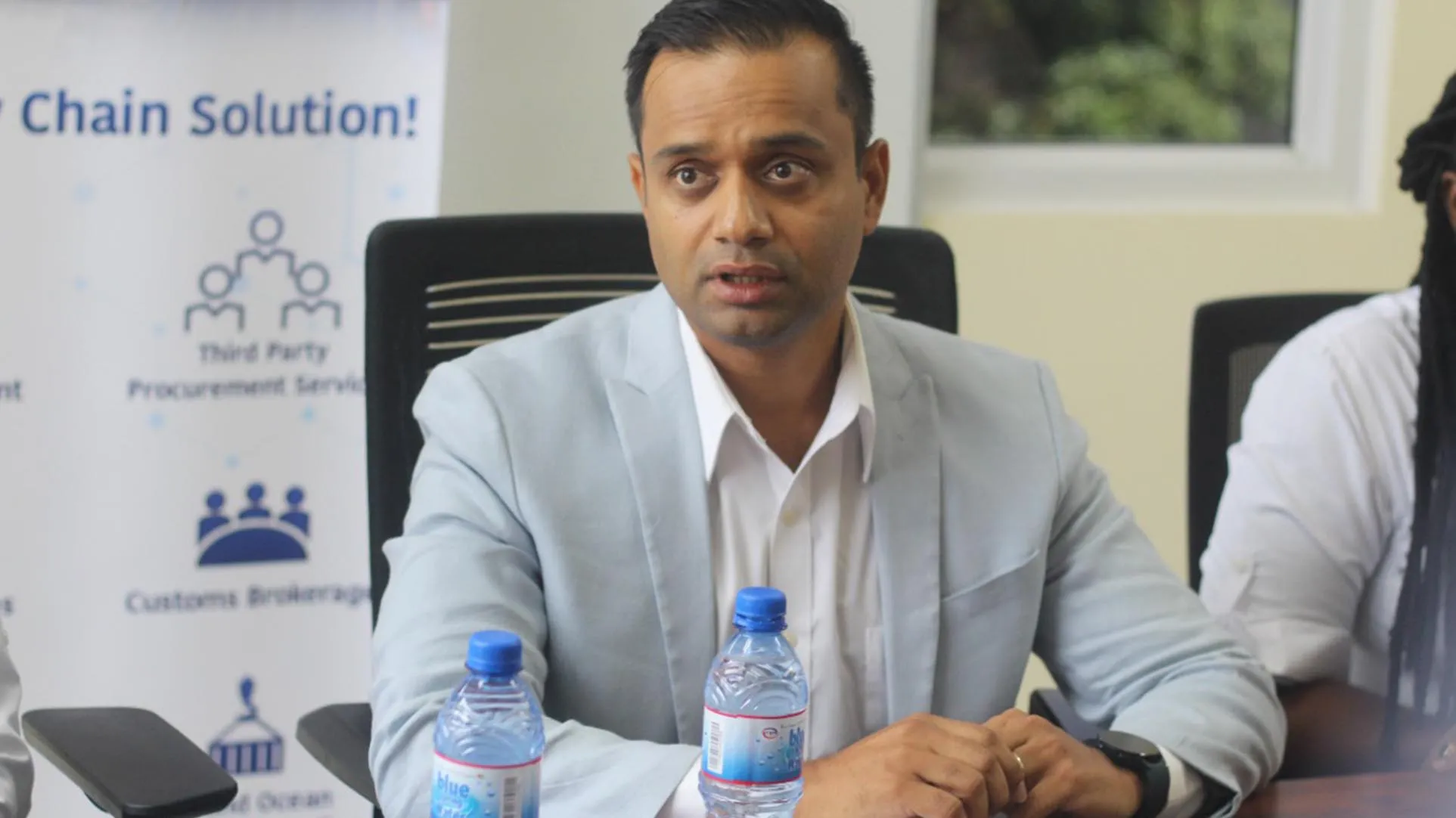
(Trinidad Express, 25.Jun.2022) — Guyana’s local content law is likely to affect the future operations in the oil-rich South American country of one of its earliest and biggest investors, a Trinidad-owned company, Ramps Logistics.
Ramps Logistics, a family-owned business from Cunupia, expanded into Guyana in 2013–which was before ExxonMobil discovered oil in the South American country—and set up a subsidiary company called Ramps Logistics Guyana.
Two weeks ago, Guyana’s Local Content Secretariat denied Ramps Guyana a local content certificate to operate in the country.
Chief executive of Ramps Logistics Shaun Rampersad, who is also chairman of Ramps Guyana, said there has been no reason forthcoming as to why it was denied certification since it met all the requirements outlined by the act.
The Local Content Act was passed in Guyana in December 2021 to encourage development and greater participation for Guyanese nationals in the petroleum industry.
Among the requirements for certification is that the company has to be registered in Guyana, have 90 per cent of its employees from Guyana, 75 per cent of its management team must be Guyanese nationals, and that it must be 51 per cent owned by a Guyanese national.
At a news conference last Thursday, Rampersad released documents to the media, which his company had submitted to the Local Content Secretariat for certification.
He said having met the requirements, he was hurt that he wasn’t even provided with an explanation for the denial or even a request of clarification of any of the documents submitted.
“It wasn’t just that we were denied the certificate. What has been circulated in the newspapers is that we were somehow trying to just scam the system or we are trying to find back-end ways of getting in,” he said in an interview with the Sunday Express last week.
As a result of the requirement that 51 per cent of his company must be owned by a Guyanese national, Rampersad said he struggled to find the right partner to divest the Guyana business.
He did not want to just hand over the majority ownership of the company—which he had struggled to build up and now employs about 400 mostly Guyanese workers—to just anyone.
He noted that Ramps Guyana made no money from 2013 to 2018 in Guyana, and was funded in large part by the company’s T&T operations.
He said having grown the business into a competitive, regional company, he wanted a partner with business acumen and innovative thinking on how it could improve and expand the Guyana operations.
He found that partner in his friend, Deepak Lall, a Trinidad-born, now naturalised Guyanese citizen.
Lall’s birth in Trinidad to a Guyanese father and Trinidadian mother was registered in Guyana in June 2021. His Guyanese passport was issued on September 9, 2021
Lall, a mechanical engineer, is the managing director of the Point Lisas-based Qualitech Machining Services, a machining services, engineering sales and service and project delivery provider in the Caribbean.
On the basis of his Guyanese passport, Lall became a shareholder at Ramps Logistics Guyana on March 9, acquiring 51 per cent of the company in newly issued shares for US$1 million.
Lall told the Sunday Express that as part of the wider diaspora, it was an entry to contribute to the country.
“My grandfather and his family had to flee their home, their business and the country they love due to persecution in the ’60s. They rebuilt themselves from scratch in the UK. My father migrated to Trinidad in 1977 and has been working in the oil and gas sector ever since.
“I have been following the efforts of Guyana’s Foreign Secretary Robert Persaud and the Diaspora Unit of the Ministry of Foreign Affairs to get the diaspora to return and contribute, and I strongly feel that I can contribute.
“Since early 2021, I initiated and received my Guyanese citizenship as it is my birthright through descent. While doing so, I was planning my entry and investment into the country. I have shared a decade-plus business relationship with Ramps Logistics, and this opportunity to join them and invest in Guyana simply came along coincidentally.
“As with all progressive-thinking people, you are always on the lookout for opportunities. Prior to Guyana’s opportunities for oil and gas, many nationals migrated to the US, UK and the Caribbean. Now that there is opportunity back home, we are happy to return and explore these,” Lall said.
Rampersad said the messaging from the Government is that it wanted to bring the diaspora back to the country.
“When we called the press conference, that’s what I wanted to say. I want to tell people that listen, I think that the government has a good plan for human development. I see a lot of the right tone coming out like, we want investors to come in, Guyana is open for business. And the government clearly understands that the diaspora holds a tonne of resources that could develop the country.
“I think Guyana could become the Dubai of the Caribbean, but I don’t think that can happen without the input of the Guyanese diaspora. They hold billions of dollars in capital. They are extremely intelligent. They are well qualified.
“I know Robert Persaud, who’s the foreign secretary, continuously speaks about the network of the diaspora, interacting with having experience with and working with multinational companies, right? That’s not something that you have a whole lot of in Guyana. So if you bring that network from the diaspora back, you could really catapult development in Guyana and create opportunities for young people like never, never, never before.”
The ExxonMobil draw
Before the discovery of oil, Guyana was an investor-wary, Caricom-classified country which had haemorrhaged human capital over time, its economic growth was small and prospects were limited.
As a pioneer investor in Guyana, Ramps was “in the right place at the right time”, to quote Rampersad, when Exxon Mobil, an American multinational and one of the world’s largest publicly traded oil and gas companies, started discovering oil in Guyana in 2015.
In 2017, Ramps Logistics Guyana was awarded a five-year logistics contract for ExxonMobil to coordinate its operations in Guyana.
Since then, Exxon has had 31 oil discoveries in its Stabroek block.
In April, the company announced it found oil in three new wells, raising recoverable oil and gas potential from its discoveries to nearly 11 billion barrels.
Exxon and its partners—Hess Corp and China’s CNOOC Ltd— have said they plan to pump 1.2 million barrels of oil and gas per day from the block by 2027.
According to the energy trade publication Argus Media, Exxon now expects to produce more than 750,000 barrels of oil a day offshore of Guyana by 2025, a figure equivalent to 20 per cent of the company’s present global oil and gas production.
In November 2021, Exxon issued a tender for a new logistics contract for the next five years.
The submission deadline was January 6, 2022.
Ramps’ current contract with Exxon expires in November 2022.
Rampersad said that Exxon ran all their tenders through their global tender system.
“Guyana was a real greenfield. The reason we went down there was really to service commodities and raw materials like bauxite, gold, timber, rice, all of that kind of stuff. We thought that there was a real opportunity around commodities, to get into the logistics of commodities or maybe even trade commodities.
“Exxon had unique challenges and they needed somebody who had been on the ground. And we have been there since 2013. We understood the local Guyanese landscape, but we also understood the international side as well because we’ve been in the business for a long time.
“Every dollar that we had available to invest, we pushed it towards Guyana, to invest, hire people, build systems, buy this, do this, you know, and we just continue to invest,” Rampersad said.
Despite not having certification, Rampersad said he is able to operate until the end of the year.
“We are able to operate right now because the local content law that was enacted in December allows until the end of this year for companies that already have contracts, so we have all of our contracts that have been grandfathered in, that you can continue to operate until the end of this year without a local content certificate,” he said.
“But, you know, some of the major areas of services that we provide are in logistics, that would include personnel logistics, trucking, customs brokerage, lifting. A big chunk of the law says you have to source the services from local Guyanese companies. A local Guyanese company is one that is deemed in possession of a local content certificate.
“So, I mean, right now, if we don’t have a local content certificate, our business will be chopped in half or maybe three-quarters because we will not be able to work within the oil and gas sector,” he said.
“My only concern is to make sure that our people are compliant with the laws in Guyana and that we are able to operate legally in Guyana,” he said.
Last week, VICE News published a story on Guyana on whether it was up for sale, following an explosive interview with Vice-President Bharath Jagdeo.
Do investors need to pay bribes to operate in Guyana?
Rampersad responded: “Look at Ramps. We’ve been operating in Guyana for nine years. And I could tell you, we’ve never paid a bribe. We have never, ever, ever paid a bribe. So can companies operate in Guyana without paying bribes? Hell, yes. You can.
“Has it been easy? No, it hasn’t. Because there are people who come continuously and say, ‘Listen, if you work with me or if you use me, you wouldn’t have any problems here in Guyana’. And there are companies who succumb to that.
“And I think the Ramps story is a good story for all investors. Instead of trying to understand who has a relationship with who, be as open and transparent as possible and be honest with your staff, with the politicians and with all of your stakeholders.”
____________________
By Asha Javeed

